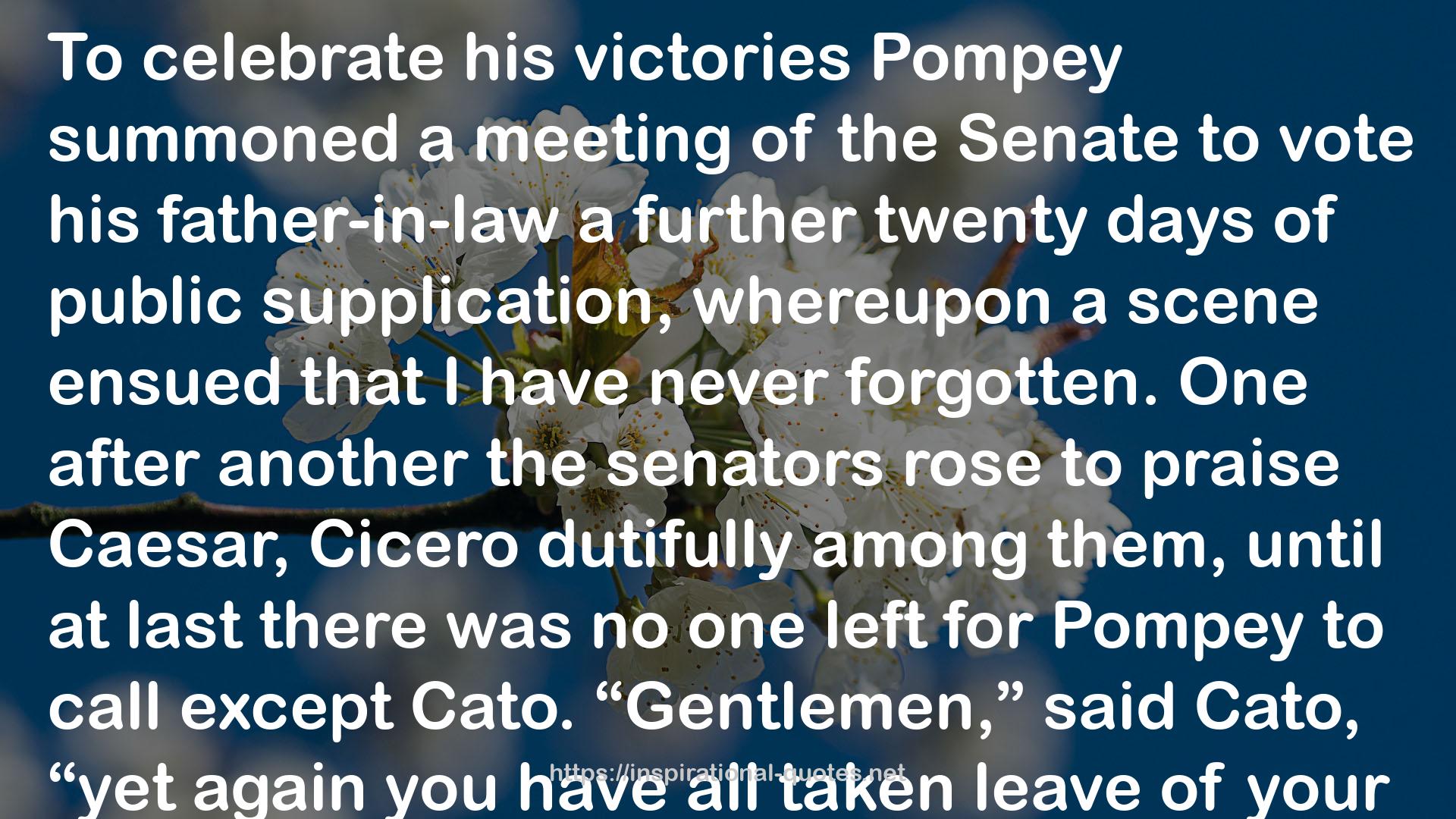" To celebrate his victories Pompey summoned a meeting of the Senate to vote his father-in-law a further twenty days of public supplication, whereupon a scene ensued that I have never forgotten. One after another the senators rose to praise Caesar, Cicero dutifully among them, until at last there was no one left for Pompey to call except Cato. “Gentlemen,” said Cato, “yet again you have all taken leave of your senses. By Caesar’s own account he has slaughtered four hundred thousand men, women and children—people with whom we had no quarrel, with whom we were not at war, in a campaign not authorised by a vote either of this Senate or of the Roman people. I wish to lay two counter-proposals for you to consider: first, that far from holding celebrations, we should sacrifice to the gods that they do not turn their wrath for Caesar’s folly and madness upon Rome and the army; and second, that Caesar, having shown himself a war criminal, should be handed over to the tribes of Germany for them to determine his fate.” The shouts of rage that greeted this speech were like howls of pain: “Traitor!” “Gaul-lover!” “German!” Several senators jumped up and started shoving Cato this way and that, causing him to stumble backwards. But he was a strong and wiry man. He regained his balance and stood his ground, glaring at them like an eagle. A motion was proposed that he be taken directly by the lictors to the Carcer and imprisoned until such time as he apologised. Pompey, however, was too shrewd to permit his martyrdom. “Cato by his words has done himself more harm than any punishment we can inflict,” he declared. “Let him go free. It does not matter. He will stand forever condemned in the eyes of the Roman people for such treacherous sentiments.” I too felt that Cato had done himself great damage "
― Robert Harris , Dictator (Cicero, #3)
